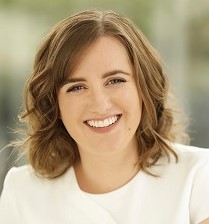Autism Spectrum Disorder has been considered as a predominantly male condition. However, in recent years researchers started to explore the idea that girls and women are simply under-diagnosed, not under-represented (Mehta, 2017).
This could be because:
- Traditional tests may be gender biased
- Deficits in women are harder to identify
- Cultural reasons
- Women may hide their symptoms better
- Women may be more motivated to try to fit in
- Girls may use their hyper-fixation in a more socially acceptable manner
- Girls may be less disruptive compared to boys (Mehta, 2017)
To spot a high-functioning female with undiagnosed autism, it is necessary to put aside traditional concepts that we may have picked up from films and Television programs, such as The Rain Man or Big Bang Theory. Each individual with or without ASD has their own unique personality which makes them who they are. Thus, each person affected by ASD may come across somewhat differently. It is the overall picture, the accumulated patterns of symptoms that leads clinicians to diagnosis.
Let’s review some symptoms that are helpful to pay attention to, when considering the possibility of ASD in women particularly:
- Labelled as extremely introverted
- Has good communication skills, but inside they find small talk difficult
- Either click with someone on a deep level or not at all
- Social battery has limited capacity
- Has sensory processing issues, such as sensitivity to light, noise or textures. They may avoid crowds and loud places as a result.
- Heightened alertness in social situations, in which they may feel threatened and overwhelmed
- Flat affect/facial impression
- Camouflaging
- At times, may come across rude unintentionally
- People pleaser – struggles to say ‘No’
- Scripting conversations
- Hyper-fixation on hobbies, TV shows, work projects
- Perfectionism
- Prone to burnouts
- Procrastination – struggles to break tasks down to manageable chunks
- Plan rigidity – even small changes to plans can solicit meltdowns, emotional reactions out of proportion
Since the person feels heightened and alerted in social situation, they may at times feel ‘socially unsafe’ when they find themselves in novel social circumstances. As mentioned earlier, this may make them feel threatened and overwhelmed. This sense of being overwhelmed in turn may lead to a premature and incorrect diagnosis of Social Anxiety or Major Depression.
If there is a diagnosis such as the ones above and/or Obsessive Compulsive Disorder or Bipolar Affective Disorder, but
- The anti-depressant does not have a positive effect or
- The symptoms have even worsened
- And despite all efforts the therapy treatment has not brought about a significant improvement
The above can be an indication that the current diagnosis is incorrect, thus seeking a second opinion is worth considering.
In children and adolescents school may provide a much desired structure for girls and women with ASD. They may find that entering university and the workforce with its uncertainty and high expectations of self-directedness may increase their overall anxiety. The symptoms have been there all along, but this new environment with its added pressure and flexibility bring them to fore.
The most commonly used treatment for individuals with ASD is Cognitive Behavioural Therapy (CBT). CBT has been shown to be effective to improve depression, anxiety and communication skills (Green et al. 2019). In addition to CBT, mindfulness has also been used, especially to reduce rumination (Green et al. 2019). Psychologists can also help women develop skills in self-advocacy and safety skills as well as learning to maintain good self-care physically, mentally and psychologically (Green et al. 2019).
Having an ASD diagnosis will not take away the anxiety in social situations, but it would tailor their medications and therapy treatment. It may also give women greater licence to be more accepting and kind to themselves. This could help to see anxiety as part of being Neurodivergent, rather than needing to ‘fix’ that stubborn ‘Social Anxiety’. Overall, finally having the right diagnosis may give women freedom from previous misdiagnoses. They may find a new identity and sense of belonging in the ASD community, and learn how to best work with their newfound neurodivergent self.
Co-Author: Sharyn Jones, B Psych (Hons).
Sharyn Jones is a Brisbane psychologist with 10 years of experience working with adults, adolescents, children and their parents. Using a combination of cognitive behavioural and solution focused therapies, she aims to facilitate positive changes in client’s lives so that they can achieve and obtain their desired goals.
To make an appointment with Sharyn try Online Booking. Alternatively, you can call Vision Psychology Brisbane on (07) 3088 5422 or M1 Psychology Loganholme on (07) 3067 9129.
Author: Katalin Mezei, BA (Hons) Psych & Crim, G. Dip Psych, MSc Health Psych
Katalin Mezei is a Provisional Psychologist now based in Brisbane, having completed my undergraduate and Master’s training in the United Kingdom. My aim is to help people identify my clients’ core values and help them live according to them.
To make an appointment with Katalin please call M1 Psychology Loganholme on (07) 3067 9129 or Vision Psychology Brisbane on (07) 3088 5422.
References
Green, R., Travers, A., Howe, Y., McDougle C. (2019). Women and Autism Spectrum Disorder: Diagnosis and Implications for Treatment of Adolescents and Adults. Current Psychiatry Reports 21:23.
Mehta, S. (2017). British Journal of Neuroscience. Vol.13, No. 3
